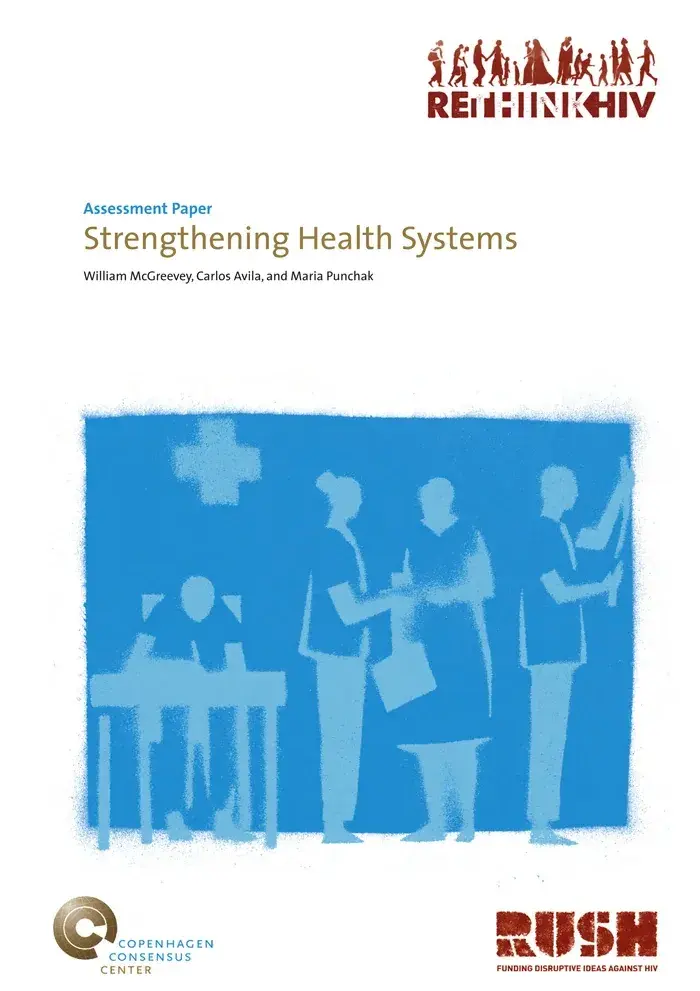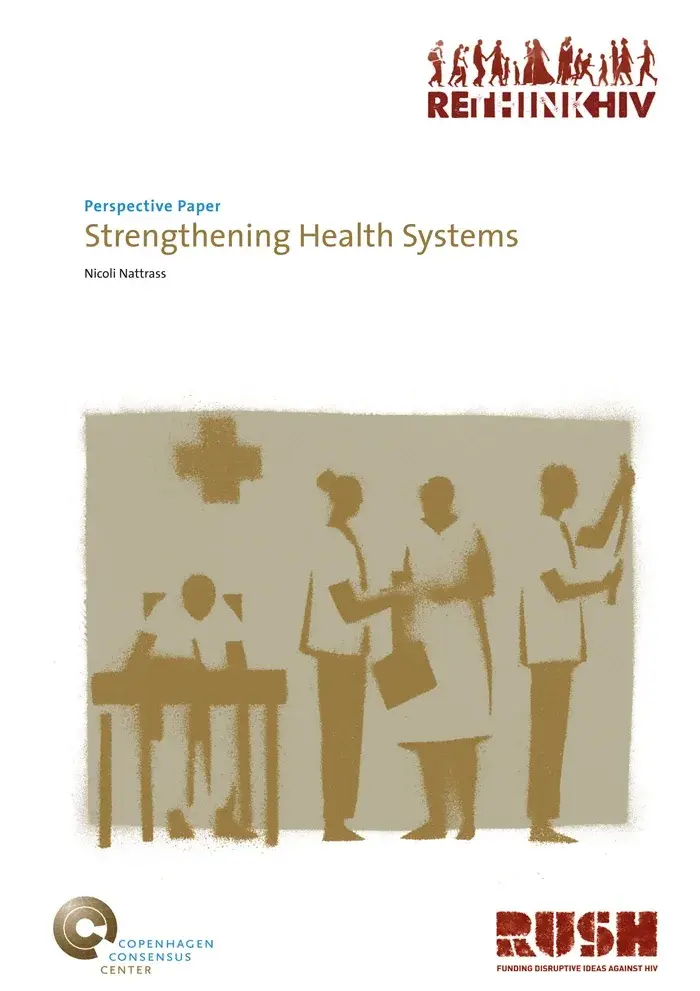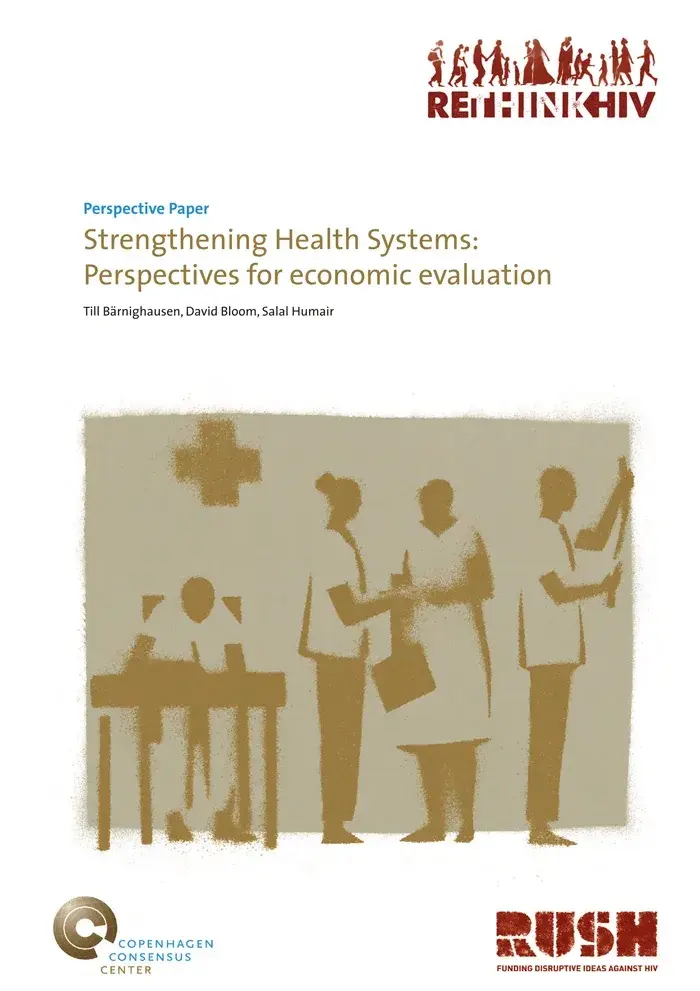Rethink HIV Health Systems
The purpose of the RethinkHIV project is to identify and highlight the most cost-effective responses to HIV/AIDS in Sub-Saharan Africa (SSA) with economic analyses of the benefits and costs of specific interventions in six categories of responses to HIV/AIDS. These are the Assessment and Perspective Papers on the last of the six topics: Strengthening Health Systems.
Assessment Paper
Among the prospective options to Rethink HIV is an effective bridging between actions focused specifically on HIV/AIDS, and actions that aim to strengthen health systems. The strengthening health systems component considers below these possible solutions:
- Universal testing, informing, and counselling can be achieved with a voucher of US$5 paid to each of the 400 million adults who accept to learn their HIV status.
- Deployment of community health workers to the rural population.
- Reducing the opportunistic infection of cryptococcal meningitis.
- An Abuja Goals Fund (AGF) can offer a cash on delivery (COD) incentive for meeting agreed goals of spending 15 percent or more of public revenues on public health.
The Assessment Paper on the topic of Strengthening Health Systems is authored by William McGreevey, Associate Professor, Department of International Health at Georgetown University, with Carlos Avila and Mary Punchak, Georgetown University.

Another Perspective by Nicoli Nattrass
Each Perspective Paper reviews the assumptions and analyses made within the Assessment Paper. In this way, a range of informed perspectives are provided on the topic.
This Perspective paper reflects on the methodology employed by McGreevey et al, comments critically on their proposed solutions and offers an alternative suggestion: support the Global Fund in its efforts to involve communities in the AIDS response.
Written by Nicoli Nattrass, Professor, School of Economics at the University of Cape Town.

Another Perspective by Till Bärnighausen, David E. Bloom, and Salal Humair
The coming decade could be very different for three reasons: (i) an expanding gap between available treatment resources and stated goals; (ii) flat-lining or declining donor support for global HIV programs; and (iii) the emergence of new demands on the global health community, such as the rise in non-communicable diseases in the developing world.
A Perspective Paper has been written by Till Bärnighausen, Assistant Professor of Global Health, Harvard School of Public Health; David E. Bloom, the Clarence James Gamble Professor of Economics and Demography; Chair, Department of Global Health and Population, Harvard University; and Salal Humair, Visiting Associate Professor, School of Public Health at Harvard University.


